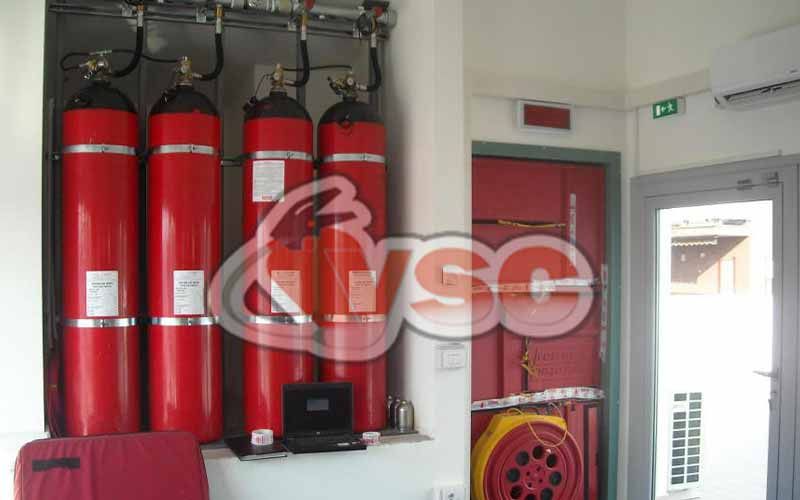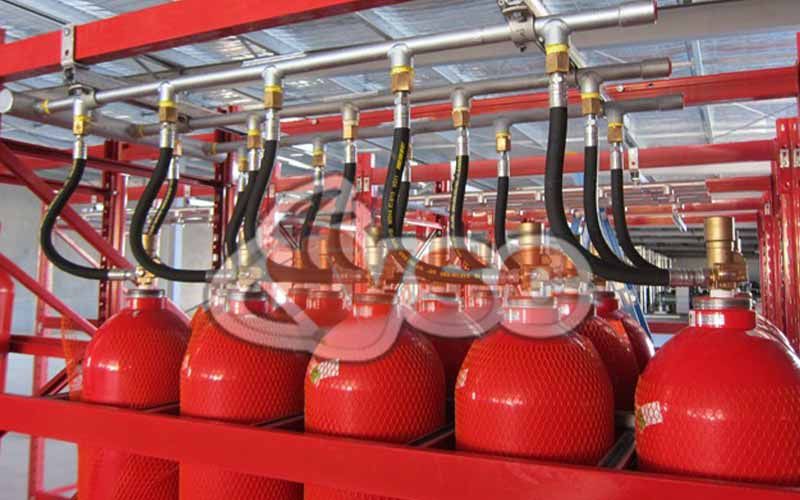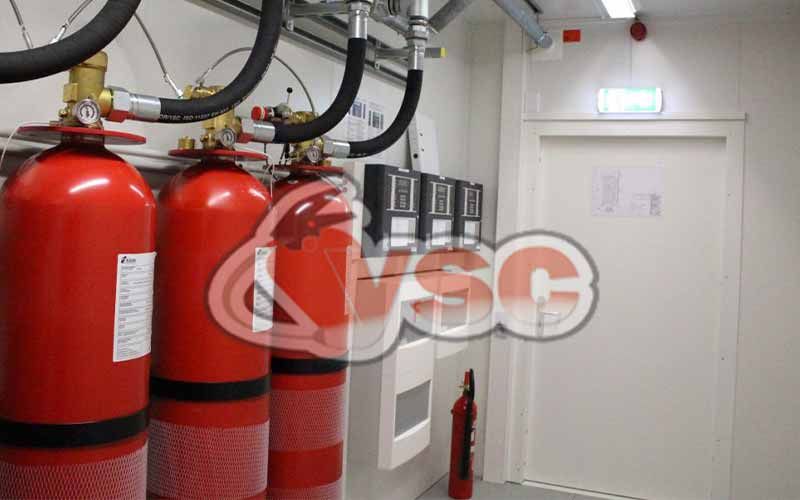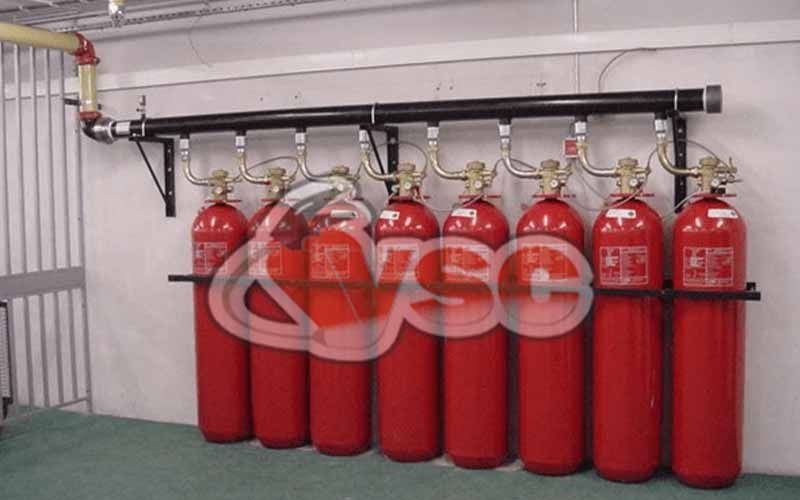FE25 Gas Extinguishing Systems (Working Principle and Price)
Gas fire suppression systems are named according to the type of gas they contain, such as FE25 or FM200. These fire extinguishing systems, which take their names from the extinguishing agent's name, are widely used in various industries. FE25, which is the market name for the chemical gas HFC 125 Pentafluoroethane, allows effective firefighting while not causing harm to the ozone layer, which protects us from harmful ultraviolet rays from the sun, like other gases. When integrated into an automatic system, it can be sprayed onto the flames within 8-10 seconds after detection.
FE25 gas fire suppression systems, which are automatically installed alongside fire detection and alarm systems for protective purposes, do not have the capability to reduce the decreased oxygen content on their own. In other words, despite the presence of gas during rescue and intervention operations, it does not negatively impact the oxygen level for living beings in the environment.
FE25 is a colorless and odorless gas and does not create any pollution in the area after potential interventions. Therefore, it does not impose an additional burden during post-fire cleanup. While it is effective for Class A, B, C, and E fires, it is not recommended for Class D fires.
After professional planning, installation, and commissioning are carried out by our competent teams in the field, instant intervention is provided for all possible problems, and maintenance and repair work are performed. In an industry where every second counts for fire protection, fulfilling the requirements at top speed has become an ethical habit.
Working Principle of FE25 Gas Extinguishing Systems
The working principle of FE25 gas fire suppression systems is designed based on engineering principles. After the planning stage, these systems are automatically installed and are designed to intervene within seconds after fire detection and alarm activation.
As mentioned earlier, FE25 gas is highly effective for fire types other than Class D fires. It is successfully used in industries such as plastics, rubber, cellulose, wood processing, coal mines, processing facilities, textile work areas, diesel-petrol storage facilities, paint, thinner, alcohol, and paraffin industries, as well as methane, hydrogen, LPG, and natural gas processing, transportation, and storage facilities, and the electrical industry.
One positive aspect of FE25 gas is that it does not deplete the oxygen in the environment. However, it should be noted that there may be toxic gases and smoke from burning materials in the area during a fire. In such situations, just like with any other type of fire, it is crucial for personnel to wear fire protective equipment and especially masks during firefighting. Although FE25 gas does not reduce oxygen levels, being prepared for all situations during the natural process of fires is essential.
FE25 gas fire suppression systems are entirely based on scientific and technical infrastructure and fully meet system requirements. They should be kept ready by regular maintenance. From project planning, production, installation, commissioning, fault detection, regular maintenance, and refilling, all the services you need are provided under our company's guarantee and assurance.
FE25 Gas Extinguishing Systems Price
The cost of FE25 gas fire suppression systems cannot be directly compared to the economic value of the protected area. These systems, which are favored by many industries, are also appreciated for their working principle. It is important to conduct a test application before commissioning after installation. As long as regular maintenance is performed, the system operates effectively and efficiently.
For the price of FE25 gas fire suppression systems, it is best to consult with the company and request a quote. The price can be evaluated based on factors such as the size of the protected area, additional features required, and the necessary site survey. Since determining a price arbitrarily can be challenging, we recommend paying attention to these aspects during your negotiations. Ensuring a reliable operation requires considering all criteria and reaching a final decision after careful evaluation.
-
FM-200 Gas Fire Suppression Systems
-
Kitchen Hood Fire Suppression Systems
-
Sprinkler Fire Suppression Systems
-
Carbon Dioxide Extinguishing Systems, CO2 (What is it? How is it used?)
-
FE25 Gas Extinguishing Systems (Working Principle and Price)
-
In-Panel Micro Extinguishing Systems (Electricity Panel)
-
Clean Gas Fire Suppression Systems (How Does It Work? Gases Used?)
-
NOVEC 1230 Fire Suppression Systems (Gas)
-
Argon Gas Extinguishing Systems (INERT Gas, Turnkey)
-
Vehicle Extinguishing Systems (Tube, Maintenance)
-
Fire Detection and Warning Systems
-
Foam Extinguishing Systems







